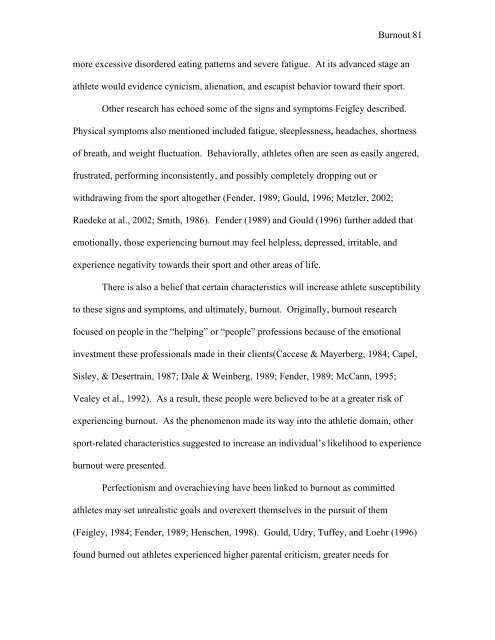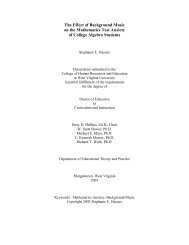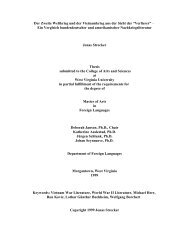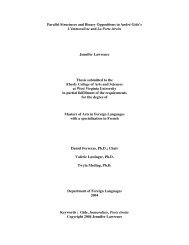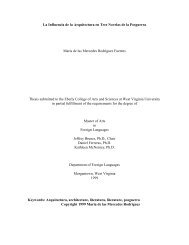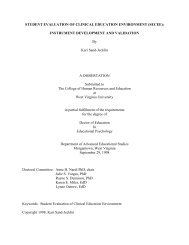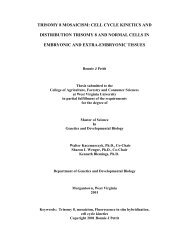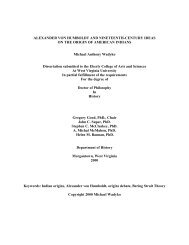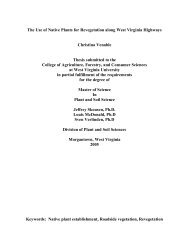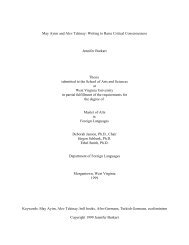Coach and Athlete Burnout - West Virginia University
Coach and Athlete Burnout - West Virginia University
Coach and Athlete Burnout - West Virginia University
You also want an ePaper? Increase the reach of your titles
YUMPU automatically turns print PDFs into web optimized ePapers that Google loves.
<strong>Burnout</strong> 81<br />
more excessive disordered eating patterns <strong>and</strong> severe fatigue. At its advanced stage an<br />
athlete would evidence cynicism, alienation, <strong>and</strong> escapist behavior toward their sport.<br />
Other research has echoed some of the signs <strong>and</strong> symptoms Feigley described.<br />
Physical symptoms also mentioned included fatigue, sleeplessness, headaches, shortness<br />
of breath, <strong>and</strong> weight fluctuation. Behaviorally, athletes often are seen as easily angered,<br />
frustrated, performing inconsistently, <strong>and</strong> possibly completely dropping out or<br />
withdrawing from the sport altogether (Fender, 1989; Gould, 1996; Metzler, 2002;<br />
Raedeke at al., 2002; Smith, 1986). Fender (1989) <strong>and</strong> Gould (1996) further added that<br />
emotionally, those experiencing burnout may feel helpless, depressed, irritable, <strong>and</strong><br />
experience negativity towards their sport <strong>and</strong> other areas of life.<br />
There is also a belief that certain characteristics will increase athlete susceptibility<br />
to these signs <strong>and</strong> symptoms, <strong>and</strong> ultimately, burnout. Originally, burnout research<br />
focused on people in the “helping” or “people” professions because of the emotional<br />
investment these professionals made in their clients(Caccese & Mayerberg, 1984; Capel,<br />
Sisley, & Desertrain, 1987; Dale & Weinberg, 1989; Fender, 1989; McCann, 1995;<br />
Vealey et al., 1992). As a result, these people were believed to be at a greater risk of<br />
experiencing burnout. As the phenomenon made its way into the athletic domain, other<br />
sport-related characteristics suggested to increase an individual’s likelihood to experience<br />
burnout were presented.<br />
Perfectionism <strong>and</strong> overachieving have been linked to burnout as committed<br />
athletes may set unrealistic goals <strong>and</strong> overexert themselves in the pursuit of them<br />
(Feigley, 1984; Fender, 1989; Henschen, 1998). Gould, Udry, Tuffey, <strong>and</strong> Loehr (1996)<br />
found burned out athletes experienced higher parental criticism, greater needs for


